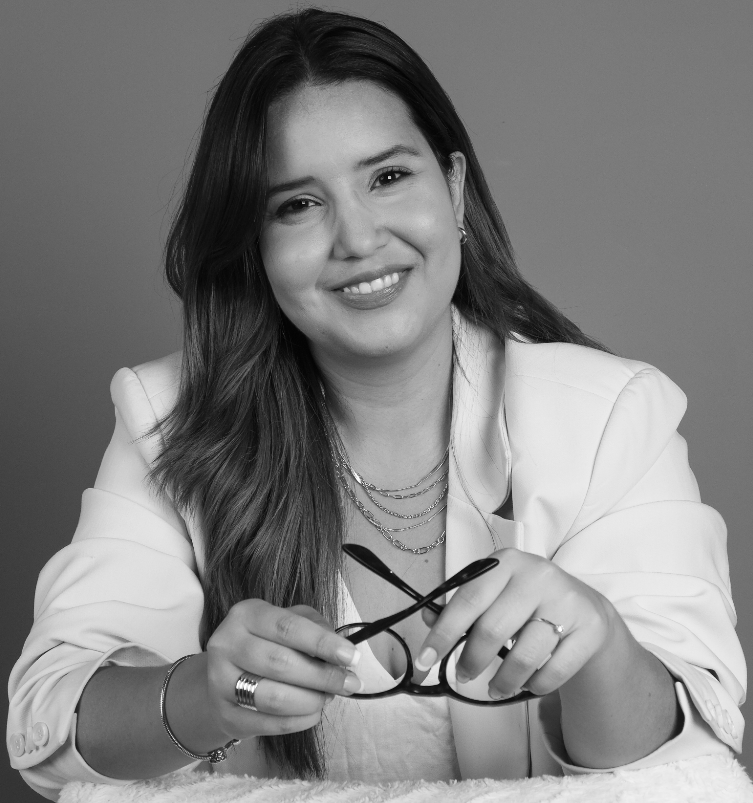“I don't just want to write about crimes, but also really want to change something”
28 september 2023
“I don't just want to write about crimes, but also really want to change something”.
As an investigative journalist, she exposed major crimes. For this she received two special prizes. She moved from Colombia to the Netherlands in 2022 for love. She brought her journalistic ambitions with her. Time for a good conversation with Éel María Angulo Hernández (32).
How did you end up in the Netherlands?
“I work as a journalist for the television channel France 24. In 2017 I encountered, for a report, Sapa Pana Travel. This travel agency organizes tailor-made trips to South America from the Netherlands. I met Johan van Rijswijck, the owner. It was not only an interesting report, but also the beginning of a romance. We got into a relationship and are still together. I came to the Netherlands for him, in February 2022.”
Before you left, you had already made a name for yourself in Colombia as an investigative journalist. For example, you investigated lead mining companies. Can you tell us more about that?
“I spent nine years doing research in La Bonga, a small village in the north of Colombia. There, several companies were active in extracting lead from car batteries. In that process, all kinds of polluting, unhealthy substances were being released directly into the living environment of the local population.”
What consequences were there for the people in the village?
“Seven days a week, ten hours a day for ten years: the emission of chemical substances was enormous and continuous. The consequences were therefore great. Many people in the village developed respiratory problems. Death rates were high, and many children could, literally, not speak. It was difficult to research it. Public information doesn't really exist in Latin America, so it was difficult to find reliable sources. Moreover, as a journalist I was threatened, and the relatives of victims were paid hush money.”
Nevertheless, you persevered and, partly because of that, several companies have now closed, right?
“That’s correct. The publicity helped to make the problem visible. The lead mining companies are now closed, and the situation has improved. However, that does not mean that all problems are suddenly over. Unfortunately, many children have health complications and that is very sad.”
This investigation brought you recognition as a journalist. Can you tell us more about that?
“I did indeed receive the Simón Bolívar Journalism Award for this investigation. That is Colombia's most important journalistic prize. We have translated the research into a documentary entitled ‘Lead, invisible poison’. We also received an award for that documentary: the Ibero-American Journalism Award from the Spanish King (environmental journalism category). And a book on this subject will soon be published: The village that couldn't breathe.”
You also work as a journalist in the Netherlands. What exactly do you do?
“I am a correspondent for France 24. In that role, I make television reports from The Hague about international developments, for example about the war in Ukraine. These reports are in Spanish, but of course it is useful to be able to speak Dutch.”
Is that the most important reason why you chose language training?
“It is indeed good for my career to learn Dutch, but that is not all. I also want to be able to have a conversation with my in-laws, for example. That wasn't possible when I first arrived, and I found that difficult. The better I learn the language, the more I feel at home here.”
You have now completed group training. Can you tell us something about your learning experiences?
“I participated in the Summer Course; lessons three times a week, in addition to homework. An intensive programme, but one that does produce results. I really like STE's system. The language trainers are good, and it goes beyond a chat at the supermarket. This is really useful to me, also for my work as a journalist.”
When did you first notice that you were starting to understand Dutch?
“That was when my mother-in-law died. In Colombia someone is buried a day after death, but in the Netherlands this can take 5-6 days. During that period, contact with the family is very intense. It is a special period in which you grieve together. It's very nice if you can really make contact.”
What will your life look like in ten years?
“I count on still living in the Netherlands because this is now my second home country. I also want to have done more research and written even more. My big dream is to set up an organization that helps the children in La Bonga. I don't just want to write about abuses, but also really want to change things.”


